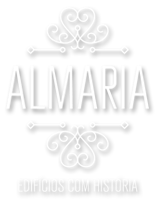Important dates in Portuguese history
24 June 1128: Battle of São Mamede
A dispute breaks out between Afonso Henriques and his mother Theresa. Afonso Henriques triumphs in battle and declares himself Sovereign of the County of Portugal.
05 October 1143: Treaty of Zamora
Considered Portugal's date of independence. Afonso Henriques, otherwise known as Afonso I, is proclaimed the First King of Portugal.
14 August 1385: Battle of Aljubarrota
Fought between Portuguese troops and the Castilian army. The Castilians are defeated, putting an end to the 1383-1385 Portuguese Interregnum.
21 August 1415: Conquest of Ceuta
By King John I's troops
1434: Rounding of Cape Bojador
Gil Eanes opens the route for the great discoveries.
1488: Rounding of the Cape of Good Hope
By Portuguese navigator Bartolomeu Dias. Opens a link between the Atlantic and Indian Oceans and a route to India.
07 June 1494: Treaty of Tordesillas
In the Castilian town of Tordesillas, the Portuguese Kingdom and the Castilian Crown sign a treaty dividing the world (of lands “discovered and to be discovered”) into two.
1497-1499: Discovery of the Sea Route to India
By Portuguese navigator Vasco da Gama. One of the most notable voyages during the Age of Discovery.
22 April 1500: Discovery of Brazil
Pedro Álvares Cabral sets sail from Portugal in March, seeking to reach India. A massive storm forces him to change course and head in a southwesterly direction, after which he arrives in Ilha de Vera Cruz in South America.
01 December 1640: Restoration of Independence
A revolutionary Coup d'Etat led by a group called The Forty Conspirators prevents Castile's Philippine Dynasty from abolishing Portugal's independence.
01 November 1755: Lisbon Earthquake
Destroys the city of Lisbon and affects a vast portion of the coastline of Algarve and Setúbal. The earthquake is followed by a tsunami (with 20m high waves) and multiple fires, leading to the deaths of more than 10,000. Measuring between 8.7 and 9 on the Richter scale, it is one of the most devastating earthquakes in history.
18 October 1807: First Napoleonic Invasion
Napoleon and a French army led by General Juno invades Portugal, forcing the royal family to escape to Brazil (1807-1821). French troops are defeated with support from the English army led by Wellington.
01 February 1908: Regicide
At Terreiro do Paço in Lisbon, King Charles and his son and heir Prince Luís Filipe of Bragança are assassinated.
05 October 1910: Founding of the Republic
A revolution organised by the Portuguese Republican Party abolishes the monarchy and establishes a republican regime in Portugal.
28 May 1926: Military Dictatorship
A nationalist, anti-parliamentary military coup puts an end to the First Portuguese Republic. This leads to the creation of a Military Dictatorship, which installs General Carmona as President of the Republic.
1930 - 1974: Salazarism
António de Oliveira Salazar, a young economist and seminarist, becomes Head of the Government. In 1933, he consolidates his dictatorship by passing a new Constitution and dissolving all political parties. The Estado Novo (New State) is born.
1961 - 1974: Colonial War
A period of clashes between the Portuguese Armed Forces and independence movements in the former overseas provinces of Angola, Guinea-Bissau and Mozambique between 1961 and 1974.
25 April 1974: Carnation Revolution
In the early hours of 25 April, military troops occupy the studios of Rádio Clube Português and announce over the radio that they intend to restore democracy to Portugal. They broadcast songs the military disapproves of, such as “Grândola Vila Morena”, which is used as the signal for beginning the coup. What starts as a coup d'etat is transformed into a true revolution. A flower vendor begins distributing carnations, first to the soldiers, who place the stems in the muzzles of their rifles, then to civilians, who attach the flowers to their chests. Thus emerges the carnation revolution and the restoration of democracy. One year later, the Portuguese people vote freely for the first time.
12 June 1985: Adhesion to the European Union
Portugal signs a treaty to join the European Economic Community (EEC). At the Monastery of Jerónimos, Prime Minister Mário Soares heads a delegation to formalise the country's entry into the European project.



